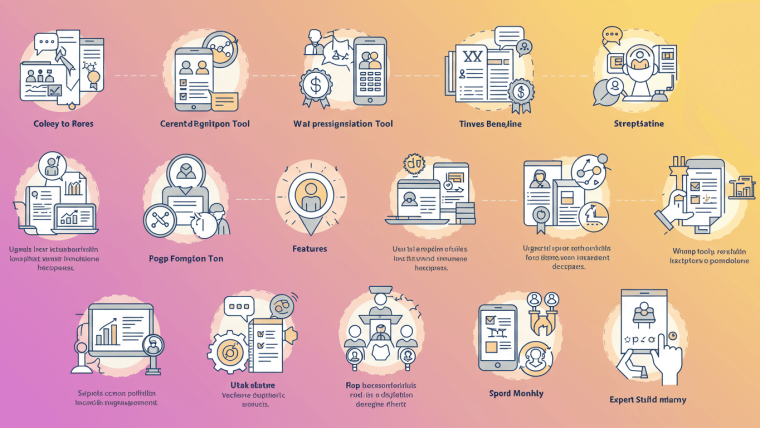Only curious if a remote career in which you call the shots on your schedule is for you? If this sounds like you, then becoming a Virtual Assistant (VA) might be just right. Over the past few years, the demand for virtual assistants has seen tremendous growth, as businesses look to remote professionals to handle a wide range of tasks.
Whether it’s to ditch the traditional 9-to-5 office grind or to build your own freelance small business, this helpful step-by-step guide will tell you everything you need to knowbecome a successful virtual assistant. We’ll discuss how VAs do their thing, skills for VAs, where to find clients, and the tricks for getting your business off the ground and succeeding in this ever-evolving field.
What is a Virtual Assistant (VA) and Why Become One?
A VA (Virtual Assistant) is a business professional that provides administrative, technical, or creative assistance to clients remotely. #4 Virtual Assistants offer remote administrative and business supportStarting at $25 per hourInstead of being stuck in an office, VAs are independent contractors who support businesses, entrepreneurs, or busy professionals on a remote basis.
Why Should You Consider Being a VA?
- Flexibility: You decide when, where, and how you work.
- High Demand: The rise of remote work has made VAs an essential part of many businesses.
- Diverse Opportunities: From social media management to bookkeeping, you can specialize in services that match your skills.
- Scalability: You can start as a solopreneur and grow into a full-fledged business by offering more services or hiring a team.
If you’re detail-oriented, organized, and self-motivated, this could be the perfect career for you.
Skills Needed to Be a Virtual Assistant
Success as a VA comes down to the skills you bring to the table. The more versatile and polished your skill set, the more you’ll stand out to potential clients.
Key Technical Skills
- Proficiency with Tools: Master apps like Google Workspace, Microsoft Office Suite, and project management tools like Trello, Asana, or Notion.
- Social Media Savvy: Know how to manage platforms like Instagram, LinkedIn, and Facebook. Understanding content scheduling tools such as Hootsuite or Later is a huge plus.
- Basic Design Skills: Tools like Canva or Adobe Spark can help with creating graphics.
- Data Entry and Management: Being efficient with spreadsheets and CRMs like HubSpot is invaluable.
Soft Skills
- Communication: Clear and professional communication is critical when working remotely.
- Organization: You may be juggling multiple clients, so staying organized with your calendar and task lists is a must.
- Problem-Solving: Clients often rely on VAs during chaotic times. Your ability to troubleshoot will make you indispensable.
- Time Management: Balancing multiple responsibilities and deadlines requires strong time management skills.
If you already have some of these skills, that’s a fantastic start. If not, the good news is that there are countless online resources to help you learn.
Finding Clients as a Virtual Assistant
Getting your first clients as a VA can seem scary and there is abundant opportunity available to help you get started.
1. Leverage Online Platforms
Platforms like Upwork, Fiverr, and Freelancer allow you to easily get in touch with potential clients in need of VA services. Specialist sites (FlexJobs, Virtalent etc) — There are websites that concentrate on remote and virtual work.
2. Tap Into Your Networks
Tell your friends, family, and followers on social media. Making a post on LinkedIn about your VA services might be visible by the clients needing your skills.
3. Build a Personal Brand Online
Have an online portfolio which highlights your skills, services, testimonials and way to reach you. Creating a following on sites like LinkedIn or launching a blog about remote work are also ways to establish yourself as an expert.
4. Offer Free or Discounted Services (at First)
You may have to give a discounted rate (or even work for free) in order to build credibility. Once you have these testimonials and views, you can begin to charge more.
Setting Up Your Virtual Assistant Business
Before you jump into working with clients, take some time to prepare and set your business up for success.
1. Legal and Financial Setup
- Register your business if necessary. Explore whether you need to operate as a sole proprietor, LLC, or any other entity.
- Open a separate bank account for your business.
- Keep track of income and expenses using tools like QuickBooks or Wave.
2. Invest in Tools
Basic tools you’ll need include a reliable computer, a fast internet connection, and software relevant to your niche (e.g., Zoom, Slack, or accounting tools).
3. Create a Dedicated Workspace
Even if you’re working from home, having a dedicated, clutter-free workspace can help boost productivity and maintain professional boundaries.
Daily Tasks and Responsibilities of a Virtual Assistant
What do VAs actually do every day? The beauty of this career is its variety. Common tasks include:
- Administrative: Managing schedules, emails, and travel arrangements.
- Social Media Management: Creating posts, scheduling content, and analyzing performance.
- Customer Support: Responding to inquiries or managing live chat platforms.
- Bookkeeping: Managing invoicing and expenses.
- Project Coordination: Streamlining workflow and ensuring deadlines are met.
The tasks you handle will depend on your clients’ needs and your chosen niche.
Tips for Success as a Virtual Assistant
The VA industry is competitive, so here are some tips to ensure you stand out.
- Master Time Management Tools: Apps like Toggl or Clockify can help you manage billing and track how you spend your time.
- Communicate Clearly and Frequently: Keeping an open line of communication with your clients builds trust.
- Know Your Worth: Once you’ve gained experience, don’t undervalue your services. Charge rates that reflect your skills and expertise.
- Keep Learning: The tools and demands for VAs are always changing. Staying updated with new technology and trends is vital.
- Deliver Reliability: Being consistent and dependable is one of the easiest ways to keep clients coming back for more.
Achieving Success in the Virtual Assistant Industry
One of the most flexible and rewarding remote career paths you can take today is becoming a Virtual Assistant. Armed with the right blend of skills, tools, and determination, you can create a business that works for you on your terms.
If you’re looking to start your career as a VA, just take it one step at a time. The goal should be to sharpen your skillset, getting your first clients and serving them well.
To learn more tips and resources on how to build a successful remote career, check out our our [Resources Page] or grab our free, downloadable guide on how to become a Virtual Assistant.








Webinar Analytics: A Complete Guide to Measuring Success and Improving Performance
The Ultimate Webinar Follow-Up Strategy to Turn Attendees into Customers
Webinar Accessibility Best Practices: How to Make Your Online Events Inclusive for All
Webinar Personalization: Tailoring Content to Audience Segments for Maximum Engagement